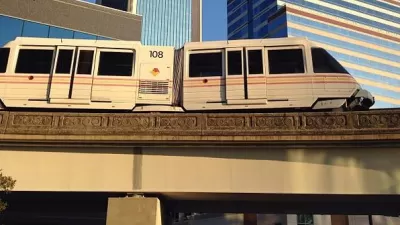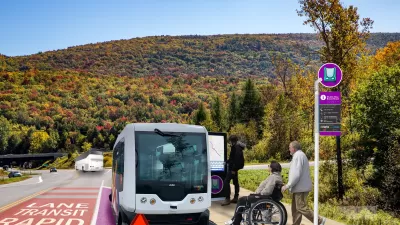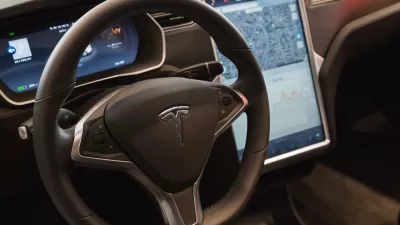According to an assessment of two North Carolina pilot projects, low-speed autonomous shuttles have too many limitations to deploy as a public transit option.

Skip Descant, writing for Government Technology, shares details of a new report that assessed two North Carolina pilot programs testing low-speed autonomous vehicles. The conclusion? The vehicles still have “too many limitations” to be effective as transit solutions, including difficulty managing urban traffic settings and slow speeds that top out at about 12 miles per hour.
“These are some of the findings in a July 2024 report on the use of the autonomous vehicle (AV) shuttles by the North Carolina Department of Transportation (NCDOT). The study examined the use of the vehicles in the city of Cary and at the University of North Carolina (UNC) in Charlotte. Both pilot projects were part of the Connected Autonomous Shuttle Supporting Innovation (CASSI) program,” Descant reports. The two pilots used shuttle technology from Navya Autonom, a French company, and the shuttles were operated by Beep, a Florida-based company.
Despite these less than encouraging results, NCDOT plans to continue into the next phase of the CASSI program, which “could lead the agency to test autonomous systems embedded into more conventional vehicles,” similar to a project in Florida set to begin later this year. Beep and the Jacksonville Transportation Authority will test “14 customized Ford shuttles equipped with Level 4 autonomous technology, capable of traveling up to 37 miles per hour,” according to the Government Tech article.
FULL STORY: Small AV Shuttles Not Yet Suitable for Transit Operations

Planetizen Federal Action Tracker
A weekly monitor of how Trump’s orders and actions are impacting planners and planning in America.

Congressman Proposes Bill to Rename DC Metro “Trump Train”
The Make Autorail Great Again Act would withhold federal funding to the system until the Washington Metropolitan Area Transit Authority (WMATA), rebrands as the Washington Metropolitan Authority for Greater Access (WMAGA).

The Simple Legislative Tool Transforming Vacant Downtowns
In California, Michigan and Georgia, an easy win is bringing dollars — and delight — back to city centers.

In These Cities, Most New Housing is Under 441 Square Feet
With loosened restrictions on “micro-housing,” tiny units now make up as much as 66% of newly constructed housing.

Albuquerque’s Microtransit: A Planner’s Answer to Food Access Gaps
New microtransit vans in Albuquerque aim to close food access gaps by linking low-income areas to grocery stores, cutting travel times by 30 percent and offering planners a scalable model for equity-focused transit.

This City Will Pay You to Meet Your Neighbors
A North Kansas City grant program offers up to $400 for residents to throw neighborhood block parties.
Urban Design for Planners 1: Software Tools
This six-course series explores essential urban design concepts using open source software and equips planners with the tools they need to participate fully in the urban design process.
Planning for Universal Design
Learn the tools for implementing Universal Design in planning regulations.
Smith Gee Studio
City of Charlotte
City of Camden Redevelopment Agency
City of Astoria
Transportation Research & Education Center (TREC) at Portland State University
US High Speed Rail Association
City of Camden Redevelopment Agency
Municipality of Princeton (NJ)





























